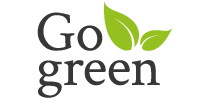So what is vegetarian cuisine?
It refers to food that meets vegetarian standards by not including meat and animal tissue products. For lacto-ovo vegetarianism (the most common type of vegetarianism in the Western world), eggs and dairy products such as milk and cheese are permitted. For lacto vegetarianism, the earliest known type of vegetarianism (recorded in India), dairy products such as milk and cheese are permitted.[1] The strictest forms of vegetarianism are veganism and fruitarianism, which exclude all animal products, including dairy products as well as honey, and even some refined sugars if filtered and whitened with bone char.
Classification
Vegetarian foods can be classified into several different types:
- Traditional foods that have always been vegetarian (cereals/grains, fruits, vegetables, nuts, etc.)
- Soy products including tofu and tempeh which are common protein sources
- Textured vegetable protein (TVP), made from defatted soy flour, often included in chili and burger recipes in place of ground meat
- Meat analogues, which mimic the taste, texture, and appearance of meat and are often used in recipes that traditionally contained meat.
- Vegans may also use analogues for eggs and dairy products
Suitable for vegetarians?
Food regarded as suitable for vegetarians typically includes:
- Cereals/grains: maize, hempseed, corn, wheat, rice, barley, sorghum, millet, oats, rye, triticale, buckwheat, fonio, quinoa; derived products such as flour (dough, bread, pasta, baked goods).
- Vegetables (fresh or pickled) and mushrooms (though some strict[clarification needed] Indian vegetarians do not eat mushrooms); derived products such as vegetable fats and oils
- Fruit (fresh or dried)
- Legumes: beans (including soybeans and soy products such as tempeh, tofu, soy milk, and TVP), chickpeas, peas, lentils, peanuts)
- Tree nuts and seeds
- Spices and herbs
- Other foods such as seaweed (however seaweed is considered inedible by some strict vegetarians for the same reason it can be considered as non-kosher by some: the possibility that various tiny animals may be found adhering to it.)[2]
Food suitable for several types of the vegetarian cuisine:
